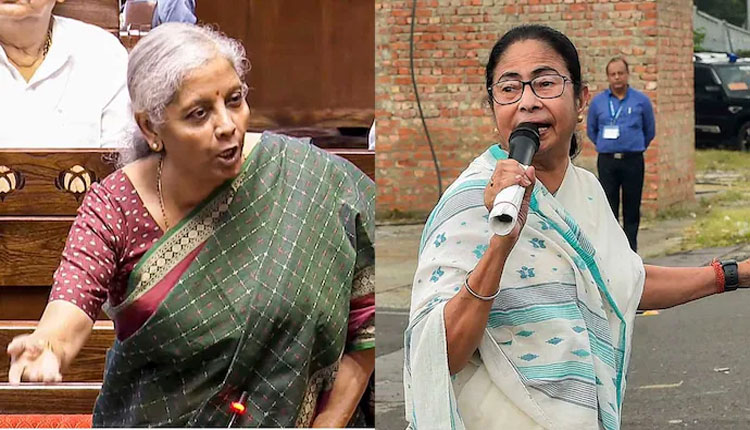New Delhi: The recent NITI Aayog meeting, chaired by Prime Minister Narendra Modi, has sparked significant political discussion and speculation, primarily centred around West Bengal Chief Minister Mamata Banerjee. Contrary to the stance of the India Alliance, only Banerjee attended the meeting from the opposition party-ruled states, subsequently walking out and alleging that she was not given adequate time to speak.
Banerjee’s participation and subsequent boycott have raised questions about her political strategy and relations with both the Modi government and the India Alliance, led by Rahul Gandhi and Mallikarjun Kharge. Her attendance has been interpreted as a potential attempt to balance criticism of the central government with an assertion of her own political standing.
The meeting saw the attendance of several Chief Ministers from opposition parties, with Banerjee being the sole representative from the India Alliance. During the meeting, she reportedly complained about discrimination in budget allocations, but claimed her microphone was switched off before she could fully express her concerns. This led to her walking out of the meeting, a move that quickly became the centre of political discourse.
Union Finance Minister Nirmala Sitharaman and the Press Information Bureau (PIB) swiftly denied the allegations of silencing Banerjee, accusing her of misleading the public. Despite these denials, Banerjee’s actions have kept her at the forefront of political discussions in Delhi.
The incident has been interpreted as Banerjee aiming to hit “two targets with one arrow”—criticising the Modi government while asserting her role within the India Alliance. Her attendance at the NITI Aayog meeting was seen as a message to both the central government and her coalition partners that she remains a significant player in national politics.
Following her protest, Tamil Nadu Chief Minister MK Stalin criticised the Modi government for its treatment of Banerjee. Meanwhile, Congress leader Adhir Ranjan Chowdhury accused Banerjee of fabricating the incident as a political stunt, further complicating the narrative.
The NITI Aayog meeting and Banerjee’s subsequent actions have highlighted the complexities and shifting dynamics within Indian politics, particularly in the lead-up to the general elections. As the situation develops, the roles and strategies of key political figures like Mamata Banerjee will continue to be closely scrutinised.



Comments are closed.